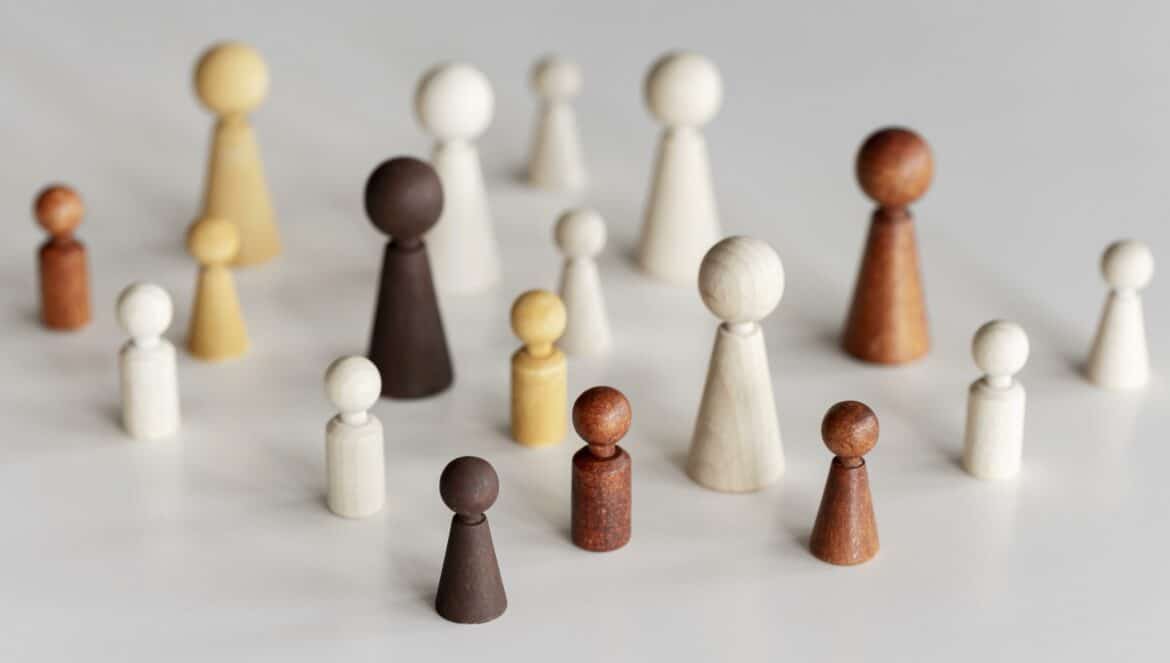Table of Contents
Image by <a href="https://www.freepik.com/free-photo/high-view-diverse-wooden-characters-inclusion-concept_10418965.htm#query=social%20justice&position=17&from_view=search&track=ais">Freepik</a>
Generally, social justice refers to what’s fair and what’s not. Unfortunately, we often see injustices happen in our lives. Sometimes these activities register with us, and sometimes, they don’t. Injustice may be something like how a homeless person is treated or threatening the protected rights of national monuments. Knowing that there are multiple sides to any issue is also essential. Students need skills and knowledge to understand injustices and make change happen. Learning about social justice helps students become better global citizens.
Knowledge is a Key Tool
Let’s start with the knowledge useful to students in tackling social injustices.
- History and context: In social studies, history, and economics classes, students learn about the historical and cultural context of various social issues and the multiple perspectives of these issues. These contexts are important in informing the development of effective solutions.
- Sociology and social psychology: Connecting current events with the past is one way to look at the multiple perspectives of an issue. When students learn and understand how social structures and individual behavior interact to create social problems, they can begin to identify ways that changing behavior can contribute to different outcomes.
- Politics and policy: While more often taught to older students, even young students need to understand how policy decisions are made. Understanding the process and how to advocate for change within the system is useful information to inform their planning and decision-making.
Social Emotional Learning Framework
If we look at the skills taught in social-emotional learning, many are critical for students as they seek to be more aware of injustice in the world. The Collaborative for Academic, Social, and Emotional Learning (CASEL) advocates that when students are taught self-awareness, social awareness, self-management, relationship skills, and responsible decision-making, their attitudes about themselves and others improve. They demonstrate positive social behaviors and relationships and increase their engagement as classroom/school community members. A few specific skills that are useful to students advocating social justice include:
- Critical thinking: Students need to analyze information, identify biases, and evaluate arguments to identify and understand the root causes of social issues and propose effective solutions.
- Communication: As with all efforts to share ideas, students have to express themselves clearly and even persuasively to advocate for collaboration and change.
- Empathy: Looking at and from different perspectives means students must put themselves in other’s positions to understand their experiences.
- Research: Finding, evaluating, and synthesizing information allows students to understand social issues deeply. This skill lets them develop more effective solutions, blending the historical, contextual, and social contexts.
- Problem-solving: Students need to be able to identify problems, brainstorm solutions, and implement and evaluate those solutions to effect positive change.
Using Values as a Teaching Tool
The knowledge and skills have to be supported by values. Whether students start with these values or develop them due to learning more about social justice, they need values related to social justice, diversity, civic engagement, and courage to advocate for effective change.
- Believe in social justice: Students must believe in equity, fairness, and equality for everyone. They also have to recognize that some groups face systemic injustices.
- Respect diversity: Students must recognize the importance of understanding and respecting different cultures, backgrounds, and perspectives. They need to value diversity.
- Participate in civic engagement: Helping students understand their citizen responsibilities will strengthen their commitment to positively contributing to their communities.
- Demonstrate courage: Speaking up for oneself and others takes courage. Even in the face of opposition, students’ voices speak up and take action to address injustices and cause change to demonstrate their courage for the better of the community.
As Tabitha Dell’Angelo said, “Teach your students about making positive change in the world by connecting with them, discussing real-world problems and multiple perspectives, creating classroom community, and including authentic assessment.” Don’t be surprised if one outcome of teaching students about social justice is student activism. Students are taking action to help those who need help or an advocate…being courageous citizens taking a stand against injustice.
Resources
- Why Social Justice in School Matters | NEA
- Social Justice In The Classroom: How to Get Your Students Invested (continentalpress.com)
- What is Social Justice in Education? | Human Rights Careers
- A Superintendent’s Approach to Hard Conversations | edCircuit

